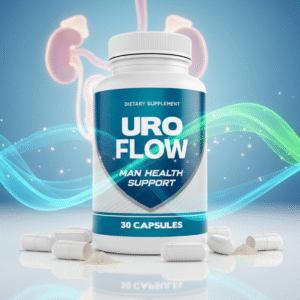Table of Contents
ToggleUnderstanding Wisdom Tooth Pain
When a wisdom tooth begins to cause discomfort, it can feel like a constant nuisance. For many, the emergence of these back molars during late adolescence or early adulthood can bring on sharp, throbbing pain. This happens because the wisdom tooth might not have enough space to emerge properly or it might be pushing against the other teeth. This pain can range from mild irritation to severe, aching discomfort. It’s important to recognize when the pain is manageable on your own and when you need professional help.
Common Symptoms of Wisdom Tooth Pain
Knowing the signs that come with wisdom tooth issues can help you determine the severity of the pain. These may include tenderness in the gums, swelling around the back of the jaw, and sometimes even difficulty opening your mouth fully. If the pain continues for a prolonged period, or if the discomfort intensifies, it may be an indication of an infection or other complication. Identifying these symptoms early can guide your next steps.
Effective Ways to Manage Wisdom Tooth Pain at Home
If your wisdom tooth is causing mild to moderate pain, there are several ways to alleviate the discomfort before seeking dental care. Here are some methods you can try at home:
-
Saltwater Rinse
Gargling with warm salt water can help reduce inflammation and kill bacteria in the affected area. This simple home remedy can bring relief and prevent infections. -
Cold Compress
Applying a cold compress to the outside of your cheek near the painful area can help numb the discomfort and reduce swelling. -
Over-the-Counter Pain Relievers
If the pain becomes too bothersome, taking over-the-counter painkillers like ibuprofen can help reduce both pain and swelling. -
Avoid Certain Foods
When your wisdom tooth hurts, try avoiding hard, crunchy, or chewy foods that might aggravate the pain. Stick to soft foods like soup or mashed potatoes.
Dental Care Tips for Managing Wisdom Tooth Discomfort
Taking care of your teeth, even when you experience wisdom tooth pain, is important to prevent any further complications. You should continue brushing and flossing, but be extra gentle around the painful area. Keeping the area clean will help avoid infection.
One of the best dental care tips is to use a soft-bristled toothbrush. Hard-bristled brushes can cause additional irritation. Also, rinsing with an antibacterial mouthwash can help keep your mouth clean while also easing some of the discomfort caused by inflammation.
When Should You Seek Professional Help?
While managing mild pain is possible at home, there are situations where you must seek help from a dentist or oral surgeon. You should consider consulting a professional if:
-
Persistent or Intense Pain
If the pain lasts for several days and doesn’t seem to improve, it may be a sign of an underlying issue, such as an infection or an impacted wisdom tooth. -
Difficulty Opening Your Mouth
If you are unable to open your mouth fully, it could indicate a more serious problem with the wisdom tooth that needs to be addressed by a professional. -
Swelling or Redness
Swelling around the tooth or redness in the gums could point to an infection. If you notice these signs, you should seek immediate help. -
Pain Radiating to Other Parts of the Face
Pain that spreads to your jaw, ear, or neck could indicate a more serious issue. You should get in touch with your dentist as soon as possible.
What to Expect During a Dental Visit for Wisdom Tooth Pain
When you visit the dentist for wisdom tooth pain, they will likely perform an X-ray to assess the positioning of the teeth. Depending on their findings, they may suggest treatment options like tooth extraction if the wisdom tooth is causing significant problems. Understanding the procedure ahead of time can help you feel more comfortable.
The Role of Wisdom Tooth Extraction
If your wisdom tooth is causing significant pain and is impacted, your dentist may recommend wisdom tooth extraction. This surgical procedure involves removing the tooth to prevent further complications. Although it may sound intimidating, this is a common procedure that is generally safe and can bring long-term relief from pain. Most people recover from the procedure in a few days to a week, depending on the complexity of the extraction.
How to Care for Your Mouth After Wisdom Tooth Removal
After your wisdom tooth removal, it’s crucial to follow your dentist’s aftercare instructions. You should:
-
Avoid Strenuous Activity
It’s important to take it easy for the first few days after surgery to avoid putting pressure on the area. -
Stick to Soft Foods
For the first few days, eat only soft foods like yogurt, mashed potatoes, and soup. Avoid anything that could get stuck in the extraction site. -
Ice Packs for Swelling
To minimize swelling, apply an ice pack to the outside of your cheek near the extraction site for the first 24 hours. -
Oral Hygiene
You can gently rinse your mouth with saltwater after the first 24 hours. Be careful not to disturb the healing area.
The Risk of Infection After Wisdom Tooth Extraction
Infections are one of the main concerns after wisdom tooth extraction. However, following proper dental care tips and post-surgery instructions can help minimize this risk. If you notice symptoms like fever, excessive swelling, or a bad taste in your mouth, it could be a sign of infection, and you must contact your dentist immediately.
Why Some People Don’t Experience Wisdom Tooth Pain
Not everyone experiences pain with their wisdom teeth. For some, these teeth emerge without any issues and do not cause discomfort. Others may have their wisdom teeth removed as a preventive measure to avoid potential problems later in life.
Preventing Future Wisdom Tooth Problems
If you are prone to wisdom tooth issues, there are steps you can take to prevent future discomfort. Regular dental check-ups are essential, as your dentist will monitor your wisdom teeth and make recommendations based on their positioning. You can also maintain good oral hygiene practices to prevent infection or decay, which may help reduce the risk of complications.
Conclusion
Dealing with wisdom tooth pain can be uncomfortable, but it’s something that can usually be managed. Whether you use home remedies or need to visit your dentist, understanding the pain and knowing when to seek help is key. Maintaining good dental care tips and following proper aftercare instructions will help ensure a smooth recovery if extraction is necessary. Keep your dentist informed about any changes in your pain levels or symptoms, and always prioritize your oral health.




